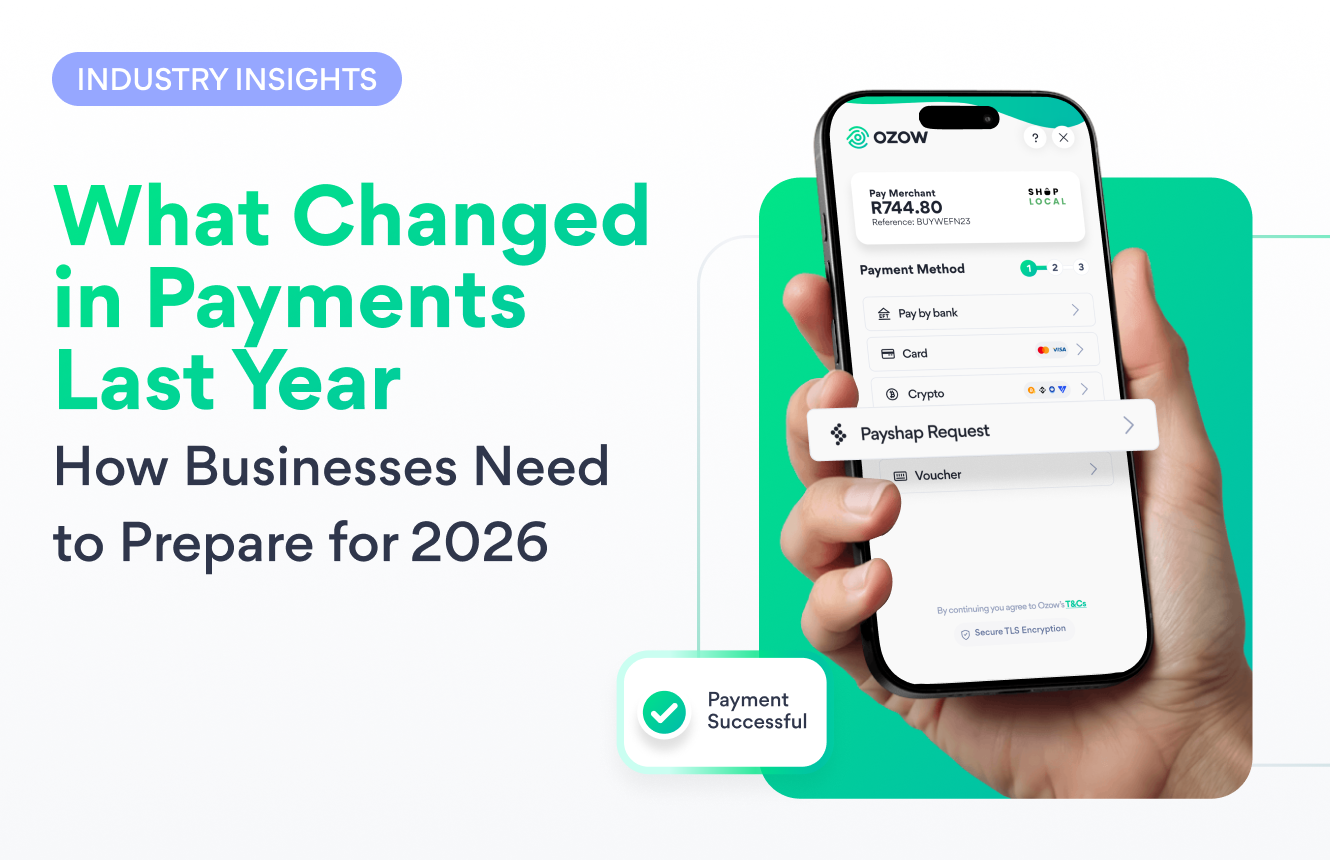
Transformation and development can be seen as the payments industry moves towards an inclusive and open banking environment.
Through partnering with formal financial institutions, fintechs are also driving open banking initiatives, such as proof-of-concept open banking payment API programmes with the banks that assist in setting standards for the industry. These include the adoption of the standards implemented by the European Union and United Kingdom. Changes to South Africa’s merchant retail payments infrastructure and the introduction of the Rapid Payments Programme (RPP) are also early indicators of this reform. The possibility for fintechs to be players in RPP exists through bank sponsorships.
Fintechs continue to engage with the regulators and relevant government bodies to help shape the regulations that would enable greater financial inclusion. By opening the playing field to new service providers and financial technologies, it helps us take one step closer to a more democratised, equitable and inclusive financial and payments sector in South Africa.
Apart from delivering products that address the needs of the people and merchants we serve, Ozow has been at the forefront of paving and driving the way forward from a regulation and collaboration perspective that underpins the concept of open banking. There has been a lot of talk about financial inclusion, closing the digital divide and drawing more people into the formal economy. But, to achieve this, it’s imperative that products and services are developed to better serve the informal sector and Small Medium and Micro Enterprise (SMME) market. This includes payment technology. Both businesses and consumers are looking for a secure alternative to cash. Global cashless payment volumes are set to almost double from 2020 to 2025, from about 1 trillion transactions to about 1.9 trillion. By 2030, the number of cashless transactions per capita will be roughly double to triple the current level.
There is a strong drive for digital payment solutions to be even safer, especially with the rise in cybersecurity issues. So, we’re seeing a lot of focus on safety, security and protecting the integrity of data. Security is getting better and trust in fintechs is growing. This is a result of implementing best practices and adhering to international security standards such as PCI DSS and ISO27001, leveraging off new technology that enables us to monitor transactions as they happen, and fraud and suspicious transaction triggers.
This includes creating trusted partnerships with formal financial institution, as well as working with the regulators on initiatives from the South African Revenue Bank (SARB), like the Screen Scraping Task Team. During the discussions, it became clear to the SARB that there are no short-term solutions to mitigate the risks identified with screen scraping. This resulted in the National Payment System Department (NPSD) now being tasked to develop a directive to address the identified risks. We see this as a positive outcome for the SARB and NPSD to start addressing the regulations for banks to implement open banking APIs in South Africa. Ozow, along with the banks, will assist the SARB to provide insights and direction on open banking initiatives to replace screen scraping.
The industry is ready and excited about the changes. The new and more inclusive regulated system will empower companies and fintechs to develop payment solutions with the agility and speed to meet the changing needs of consumers and businesses. Heralded as the replacement of the Payments Association of South Africa (PASA), the introduction of the new Payments Industry Body (PIB) will allow for payment service providers and fintechs to have direct access to important payments industry conversations and decisions through an extended and more inclusive membership regime.
Innovation can resolve many challenges, starting with the drive for financial inclusion and digital economy access for everyone. Ultimately, this supports the South African Reserve Bank’s Vision 2025 to improve access for the 47 million bank account holders in South Africa.
Collaborations and partnerships within the fintech sector have proven to be more impactful in time of adversity. It allows for greater innovation that has a direct benefit to consumers. Ozow’s recent partnership with Zapper is a great illustration of this. Ozow is a leader in bank-to-bank payments and Zapper has established itself as a serious player in the QR payments space. Together, we’re able to provide consumers with more choice, which in turn creates greater access and inclusion.
Citations
-
This thought leadership piece was written by Coenie Louw, Manager of Technical Operations at Ozow.








